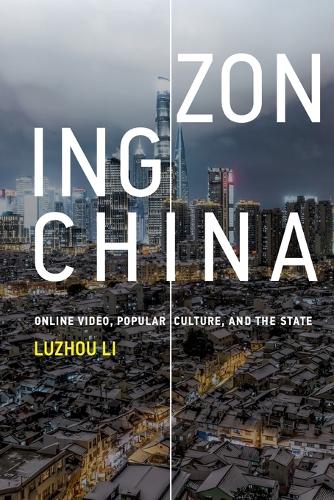
Zoning China: Online Video, Popular Culture, and the State
(Paperback)
Available Formats
Publishing Details
Zoning China: Online Video, Popular Culture, and the State
By (Author) Luzhou Li
MIT Press Ltd
MIT Press
6th February 2024
United States
Classifications
Professional and Scholarly
Non Fiction
302.230951
Physical Properties
Paperback
312
Width 152mm, Height 229mm
369g
Description
In Zoning China, Luzhou Li investigates why the Chinese government regulates online video relatively leniently while tightly controlling what appears on broadcast television. Li argues that television has largely been the province of the state, even as the market has dominated the development of online video. Thus online video became a space where people could question state media and the state's preferred ideological narratives about the nation, history, and society. Li connects this relatively unregulated arena to the "second channel" that opened up in the early days of economic reform-piracy in all its permutations. She compares the dual cultural sphere to China's economic zoning; the marketized domain of online video is the cultural equivalent of the Special Economic Zones, which were developed according to market principles in China's coastal cities. Li explains that although the relaxed oversight of online video may seem to represent a loosening of the party-state's grip on media, the practice of cultural zoning in fact demonstrates the the state's strategic control of the media environment. She describes how China's online video industry developed into an original, creative force of production and distribution that connected domestic private production companies, transnational corporations, and a vast network of creative labor from amateurs to professional content creators. Li notes that China has increased state management of the internet since 2014, signaling that online and offline censorship standards may be unified. Cultural zoning as a technique of cultural governance, however, will likely remain. An examination of "cultural zoning" in China considers why government regulation of online video is so much more lenient than regulation of broadcast television. In Zoning China, Luzhou Li investigates why the Chinese government regulates online video relatively leniently while tightly controlling what appears on broadcast television. Li argues that television has largely been the province of the state, even as the market has dominated the development of online video. Thus online video became a space where people could question state media and the state's preferred ideological narratives about the nation, history, and society. Li connects this relatively unregulated arena to the "second channel" that opened up in the early days of economic reform-piracy in all its permutations. She compares the dual cultural sphere to China's economic zoning; the marketized domain of online video is the cultural equivalent of the Special Economic Zones, which were developed according to market principles in China's coastal cities. Li explains that although the relaxed oversight of online video may seem to represent a loosening of the party-state's grip on media, the practice of cultural zoning in fact demonstrates the the state's strategic control of the media environment. She describes how China's online video industry developed into an original, creative force of production and distribution that connected domestic private production companies, transnational corporations, and a vast network of creative labor from amateurs to professional content creators. Li notes that China has increased state management of the internet since 2014, signaling that online and offline censorship standards may be unified. Cultural zoning as a technique of cultural governance, however, will likely remain.
Author Bio
Luzhou Li is a Lecturer in the School of Media, Film, and Journalism at Monash University.
